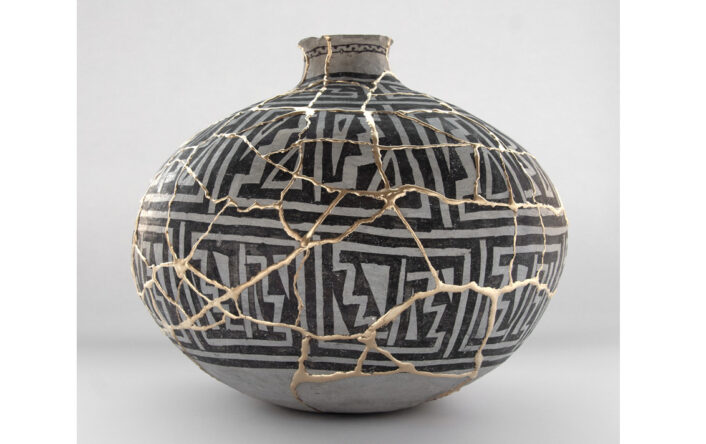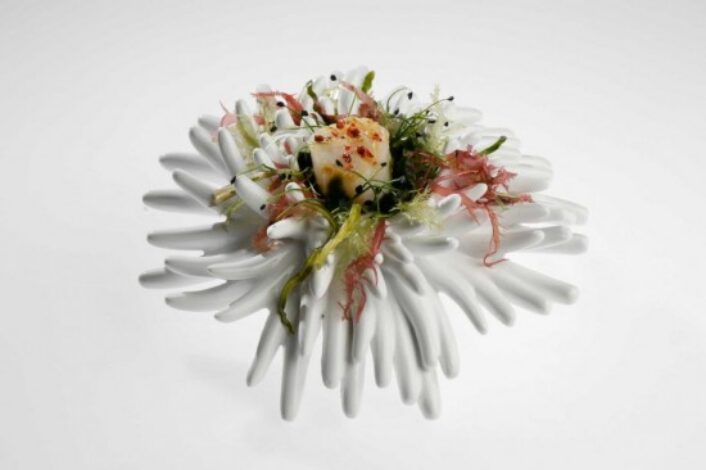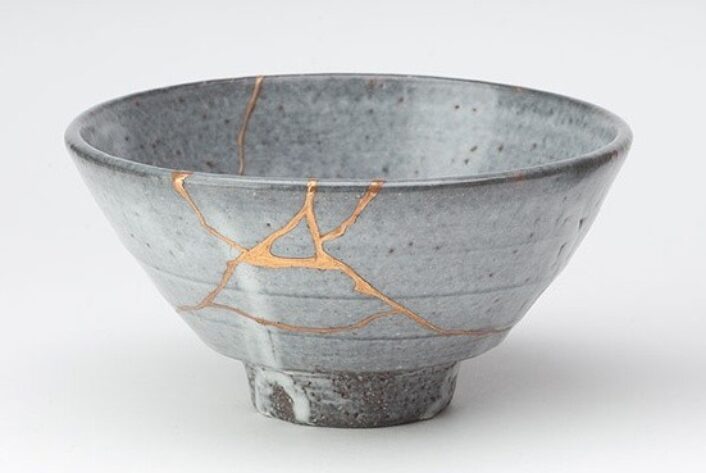From Ferrin Contemporary at the New York Ceramics and Glass Fair, 2016. Earthenware, colored underglaze, clear glaze, on-glaze burnished gold luster. 12 1/4 in diameter, 31.1 cm diameter. Image courtesy of Artsy
Design
It’s like “modern-day” Kintsugi
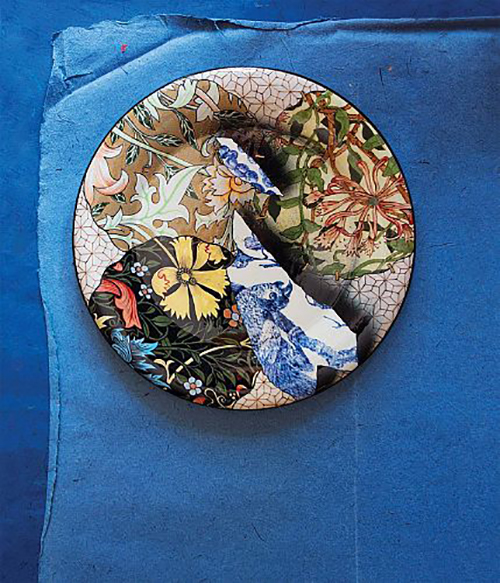
A “camouflage” plate. Image courtesy of Robin Gibson Gallery, photographed by Jessica Backhaus.
Australian artist, Stephen Bowers, is one of several contemporary artists who is putting their own take on the rich heritage of ceramics. During the 16th century, when international trade was at it’s peak, European and Asian ceramics were created, almost solely, for the newly opened export markets. The new, richly- colored patterns were a feast for the eyes of those with the funds to purchase such worldly wares.
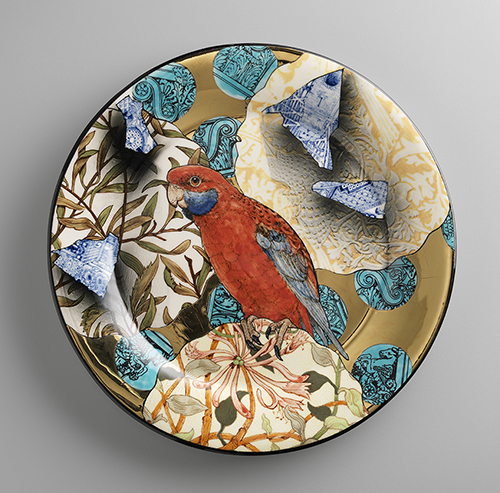
The “Camouflage Collection” blends “shards” inspired by English and French textile design with early maps.
As in the plate above, Bowers’ creation is his own! Here, he depicts the world’s “real-life” historical references from an 18th century struggle over his country’s territory.
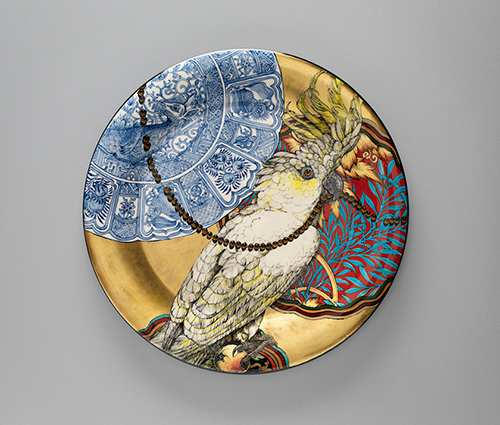
“Sulphur-Crested Cockatoo Camouflage Plate”, 2016. Earthenware, underglaze colour, on-glaze burnished gold and enamel. 31 cm diameter. Image courtesy of Diggins
Bowers’ “Camouflage Plates” are decorated with birds, usually parrots as Australia has often been referred to as the land of parrots. Set against either printed French “toiles” designs or blue and white Ming porcelain motifs, the plates provide an intense, complex juxtaposition of subjects.
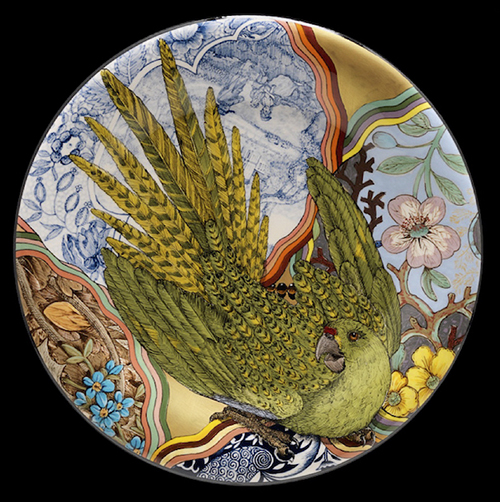
This 26.8 entree plate, “Ground Parrot”, is stunning! Image courtesy of Diggens
The “Camouflage Series” is a dinner set which can be comprised of dinner plates, entree plates, serving plates and charger.
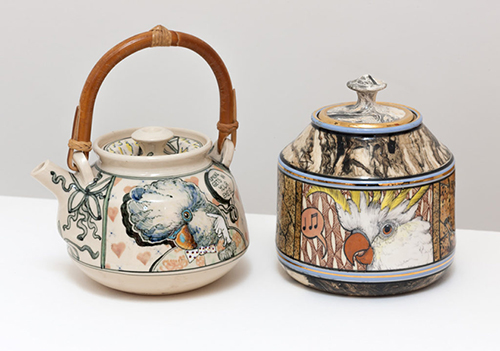
“T Pots and T” from the Camouflage Series. 19 cm and 12.5 cm high. Image courtesy of Diggins
Reminding us of Florentine designs from the late Renaissance, Australian themes are beautifully integrated alongside classical forms. The stunning glazing showcases Australia’s native flora and fauna and of course, the parrot is featured!
